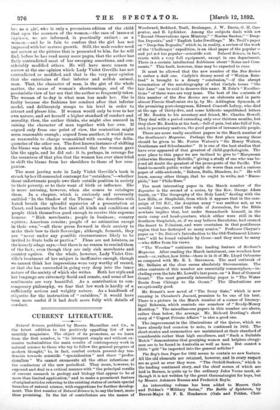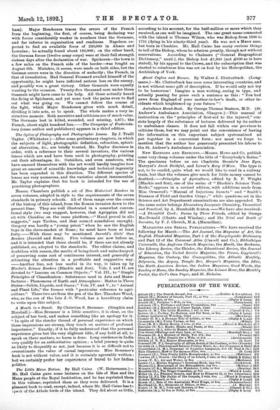An interesting volume has been added to Messrs. Gale and
Polden's "Military Series," The Battle of ?bickerer', by Brevet-Major G. F. R. Henderson (Gale and Polden, Chat-
ham). Major Henderson traces the errors of the French from the beginning, the first, of course, being declaring war with forces considerably weaker in numbers than the Germans, and far inferior in organisation and readiness. Napoleon ex- pected to find an available force of 250,000 in Alsace and Lorraine ; he actually found about 186,000; on the other hand, the German forces (twelve army corps) were at their full strength sixteen days after the declaration of war. Spicheren—the town is
a few miles on the French side of the border—was fought on August 6th. Mistakes, it seems, were made on both sides, but the German errors were in the direction of audacity; the French, in that of irresolution. Had General Frossard availed himself of the opportunity, he might have inflicted serious loss on the enemy, and possibly won a great victory. Other Generals were equally wanting to the occasion. Twenty-five thousand men under three Generals might have come to his help. All these actually heard the firing at Spicheren, and yet none took the pains even to find out what was going on. We cannot follow the course of the fight, which Major Henderson gives with much detail, dividing it into acts, so to speak. The whole makes a very in- structive memoir. Both narrative and criticism are of much value. The Germans lost in killed, wounded, and missing, 4,871; the French, about eight hundred less.—The Campaign of Fredericks- burg (same author and publishers) appears in a third edition.



































 Previous page
Previous page